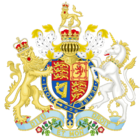Petroleum Act 1871 facts for kids
| Act of Parliament | |

|
|
| Long title | An Act for the safe keeping of petroleum and other substances of a like nature. |
|---|---|
| Citation | 34 & 35 Vict. c. 105 |
| Territorial extent | United Kingdom |
| Dates | |
| Royal assent | 21 August 1871 |
| Other legislation | |
| Repeals/revokes | |
| Amended by | Petroleum Act 1879 |
| Repealed by | Petroleum (Consolidation) Act 1928 |
|
Status: Repealed
|
|
The Petroleum Act 1871 was an important law made by the Parliament of the United Kingdom. It helped control how dangerous liquids like petroleum (oil) were stored and moved around. This law was created to keep people safe.
Contents
Why the Law Was Needed
Before 1871, there were other laws about petroleum from 1862 and 1868. These laws tried to control how petroleum was stored and transported. However, by 1871, these rules needed to be updated. The new 1871 Act was made to improve safety. It completely replaced the older laws from 1862 and 1868.
What the Petroleum Act 1871 Did
The Petroleum Act 1871 became law on 21 August 1871. Its full name was "An Act for the safe keeping of petroleum and other substances of a like nature." This means it was all about keeping dangerous liquids safe.
Key Rules of the Act
The Act had 18 main sections and two schedules. Here are some of the most important parts:
- It gave the law a short name.
- It explained what certain words in the law meant.
- It defined what "petroleum" was and when the law applied.
- It set rules for ships carrying petroleum.
- It said that ships carrying petroleum had to give notice.
- It required labels on containers holding petroleum.
- It made rules for how petroleum should be stored.
- It explained who the "local authority" was (the group in charge).
- It described how to get licenses (special permissions).
- It explained what to do if a license was refused.
- It allowed officers to test petroleum.
- It set penalties for not giving information or blocking officers.
- It allowed searching for petroleum.
- It said the law could apply to other similar substances.
- It explained how to deal with legal cases and penalties.
- It kept some older powers for dealing with flammable things.
- It officially cancelled the older petroleum laws.
- It stated that the law would only last until 1 October 1872.
What Happened Next
The Petroleum Act 1871 was only meant to last for a short time. It was supposed to end on 1 October 1872. However, it was kept going each year by new laws until 1879. In 1879, another law, the Petroleum Act 1879, said that the 1871 Act would stay in force until Parliament decided otherwise.
The 1871 Act also made harbour authorities create their own rules. For example, the Thames Conservancy, which managed the Port of London, made rules in 1872. These rules stopped ships carrying petroleum from going too far up the River Thames. Ships had to unload their petroleum into special covered barges to take it into London.
The Petroleum Act 1871 was later changed by the Petroleum Act 1879. Both the 1871 and 1879 Acts were the main laws for petroleum until the late 1920s. They were both replaced by the Petroleum (Consolidation) Act 1928.
The 1871 Act also applied to Ireland. It remained a law in the Republic of Ireland until 1972. It was then replaced by the Dangerous Substances Act 1972.
See also
- Petroleum Act
 | Mary Eliza Mahoney |
 | Susie King Taylor |
 | Ida Gray |
 | Eliza Ann Grier |

